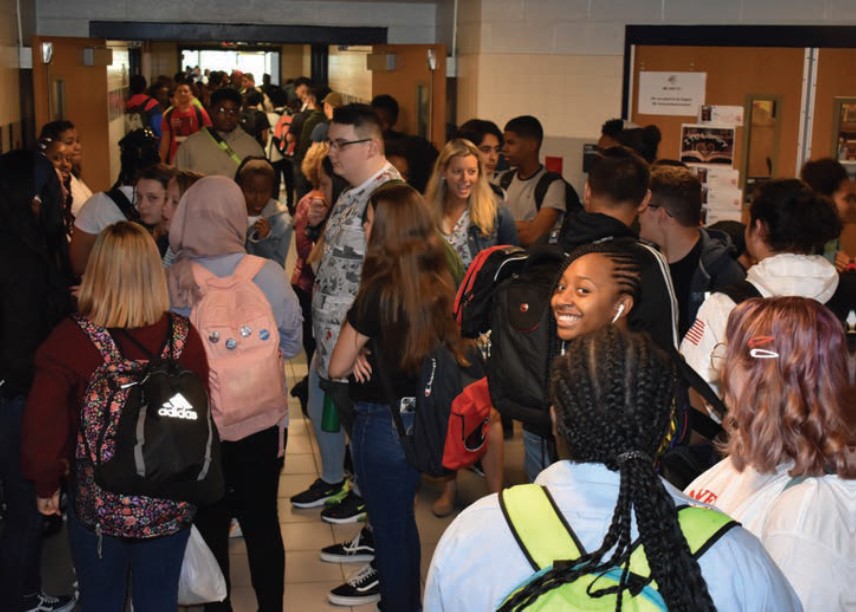As a result of the disruptions caused by the pandemic, schools all over the country have seen a significant rise in unwanted student behavior, from refusal to follow directives to physical fights. Classrooms and public spaces feel out of control, and office disciplinary referrals and suspensions have increased. Students’ social and emotional needs have heightened. Relational trust has been compromised. Many students and staff do not feel welcomed, supported, and respected.

The way students, teachers, and administrators experience school influences their actions and behaviors. Safe, supportive environments and positive relationships among adults and peers strengthen attachment to school and enhance adolescent resiliency and healthy development. Recalibrating and sustaining a sense of community among all students and adults within a school is a conscious act that requires time, attention, and intention.
Engaging Schools’ Climate & Culture Service has multiple pathways for helping to build and sustain school communities that are safe, nurturing, and caring. These pathways include supporting the implementation of school-wide and classroom promotion, prevention, and intervention strategies, as well as the creation of new or refined school structures.
Safe & Welcoming Public Spaces
Safe & Welcoming Public Spaces is a school-wide program to improve the safety and climate of non-classroom spaces, including hallways, cafeterias, bathrooms, stairwells, and entry/exit areas. Engaging Schools partners with schools in the strategic use of promotion, prevention, and intervention strategies that: proactively create safe and supportive school environments; reduce the likelihood of disruptive and/or dangerous behaviors by stopping students before they engage in them; and put in place procedures for handling conflicts and high-impact incidents in ways that minimize risks to all involved.
In-School Suspension and Restoration (ISSR) Rooms
Engaging Schools supports the creation or refinement of these alternative learning settings for students needing an extended period of time away from the classroom, from one-half to two days. While in an ISSR Room, students begin to remediate behavior concerns and work to restore relationships with others through constructive actions. They engage in activities and interventions that support their self-awareness, self-management, and social and academic efficacy. And they complete academic assignments to ensure that they don’t fall behind.
Reset Rooms
Reset Rooms are central locations for students who are experiencing behavioral or emotional issues who would benefit from a temporary period of time to cool down. When students enter a Reset Room, they interact with staff members that have been trained to de-escalate and defuse emotions. When settled, students reflect on the incident that resulted in the referral, reset, and then return to the classroom ready to re-engage in their school day. Student support staff are on call for students that require more comprehensive assessments or interventions.
Guided Discipline Institute
This is our three-day, interactive, in-person experience focusing on classroom management and discipline strategies that strengthen students’ self-awareness, self-management, and social and academic efficacy. Through modeling, simulations, reading, discussion, and direct application, teachers explore a wide range of promotion and prevention strategies that help students become more socially and emotionally skillful.
Guided Discipline Virtual Professional Learning Series
This series includes five, ninety-minute virtual sessions that enhance teachers’ expertise in creating classrooms that strengthen students’ social and emotional skillfulness. The highly interactive sessions explore strategies that translate easily to the in-person classroom environment and provide opportunities for regular reflection and collegial dialogue around implementation.

